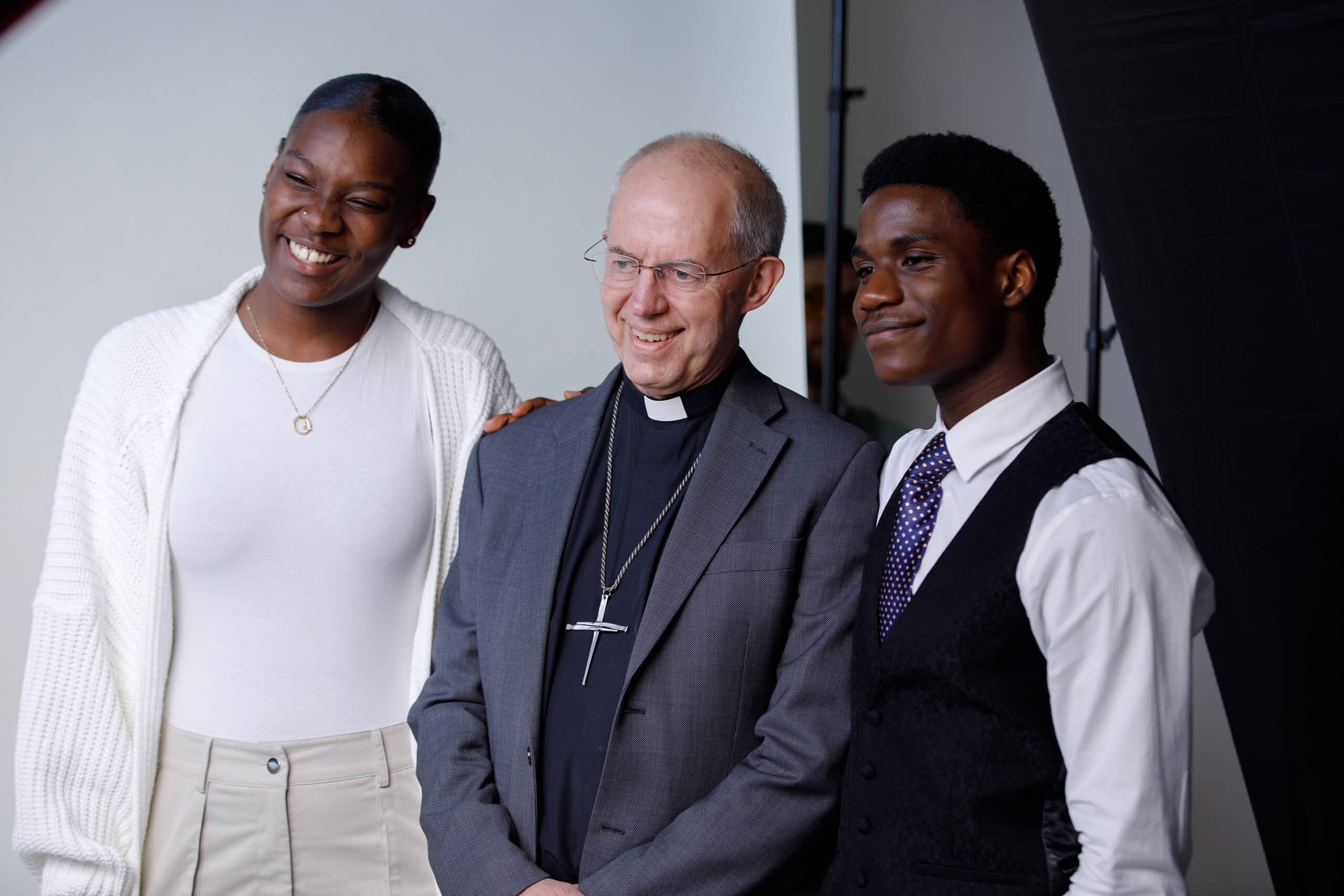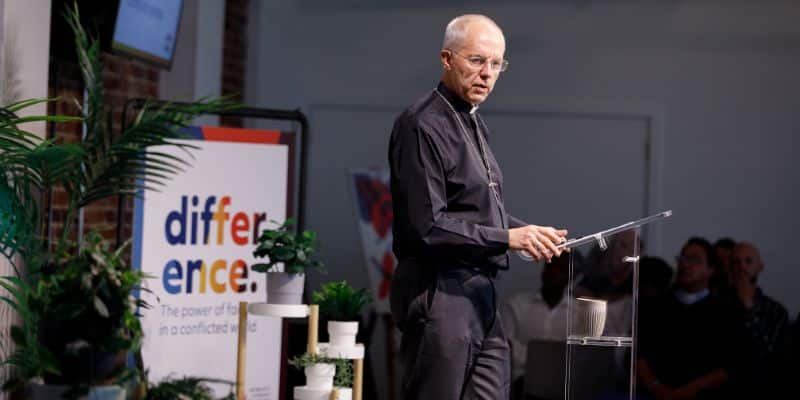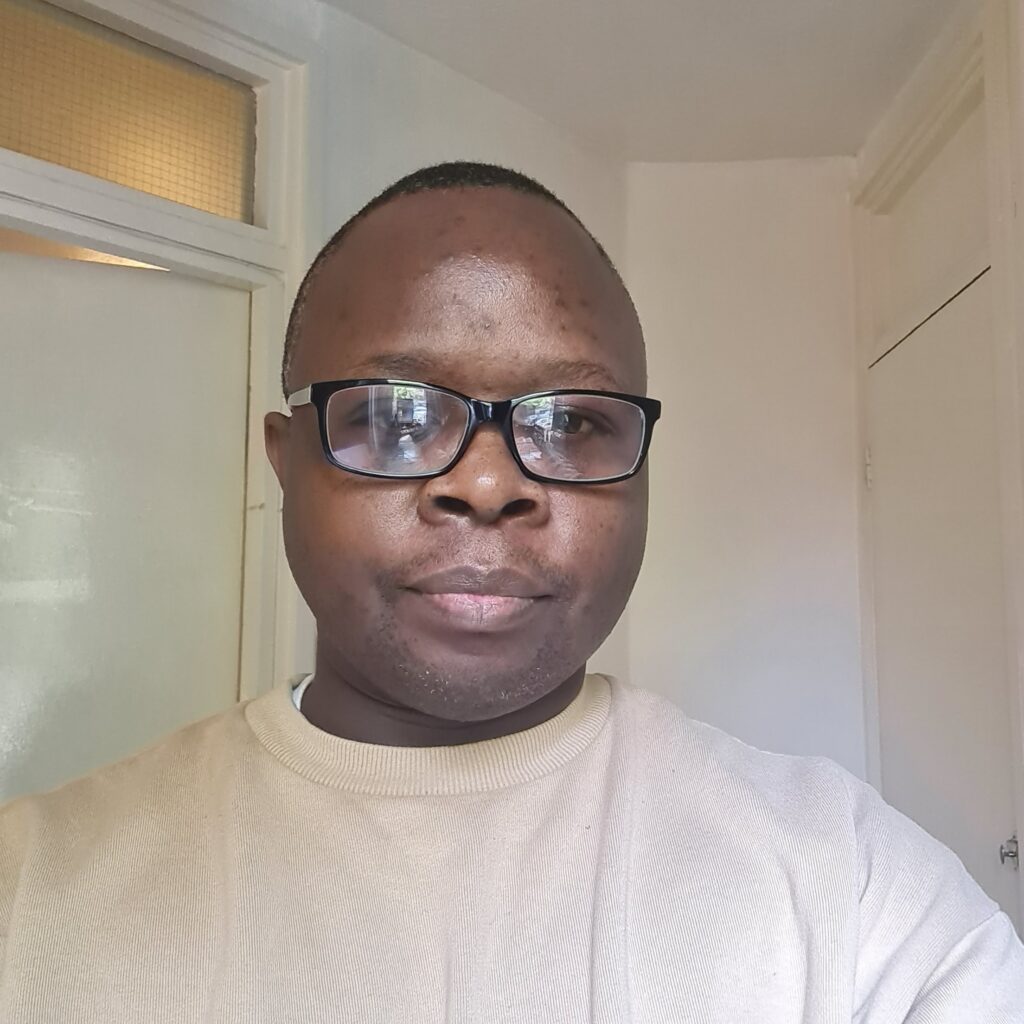This website uses cookies so that we can provide you with the best user experience possible. Cookie information is stored in your browser and performs functions such as recognising you when you return to our website and helping our team to understand which sections of the website you find most interesting and useful.

The Archbishop of Canterbury highlights the power of young people have as the agents of peace able to shape and change the narratives of endless conflict around them.
The Archbishop of Canterbury hosted his annual keynote address on reconciliation on Thursday 6 July 2023. The focus of his speech was young people and the importance of equipping them as peacemakers and reconcilers.
Emphasising that peace and reconciliation is at the heart of the Christian story and mission, the address highlighted the need to empower young people as leaders who can build peace – both for the flourishing of the next generation but also as imperatives for the Church and the world.
The Archbishop commended the deep commitment of young people to values of justice and equity, and their concern about matters of peace and reconciliation – from understanding friendships in the face of disagreement to addressing societal inequality. Research shows that the generation known as ‘Gen Z’ places a high value on diversity and prioritises social activism, with 70% involved in a social or political cause. They care deeply about sustainability and climate justice.
‘We need to resource young people as peacemakers’

Speaking about the importance of equipping young people to be peacemakers and reconcilers, Archbishop Justin said: “It is a scandalous reality that all too many young people witness or experience violence and lack alternative models of dealing with conflict. Conflict can be as simple as being cancelled, to extreme domestic, civil or international violence.
“Across the world, more than 600 million young people live in fragile and conflict-affected contexts and it is estimated that one in four young people are affected by violence or armed conflict. Research by the UN has highlighted how violent conflict ‘distorts the life cycle progress’ of young people, sometimes forcing them to take on adult roles prematurely or closing off opportunities for education and employment.”
“While we pray that future generations will inherit something better, this reality is what young people experience now. We need to equip and empower young people to deal with complexity, build relationships and cross divides with confidence and perseverance. We need to resource them as peacemakers. If we are to face the challenges of our times, we all – young and old alike – need to learn how to be people of reconciliation. We need to become people who, empowered by the Holy Spirit, bring courage, creativity and hope to those around us by stepping into broken places.”
Reconciliation – one of the Archbishop of Canterbury’s three personal priorities
One of the Church of England’s strategic priorities is to be younger and more diverse, doubling the number of children and young active disciples by 2030. Equipping young people to navigate a fractured and conflicted world is an essential part of this work.
Reconciliation is one of the Archbishop of Canterbury’s three personal priorities for his ministry and he has set a vision for the church to be a reconciling presence in the midst of conflict. As part of this, Archbishop Justin Welby has brought together leading thinkers and peacemakers to create Difference.
Difference is a free resource designed for churches which equips people with three formational habits to cross divides, navigate disagreement and pursue a just and flourishing world. Bespoke versions of Difference are being created for schools and church-based youth groups, due to be launched in early 2024.

Martin Kitara is the Communications and Marketing Manager for the Difference team.




